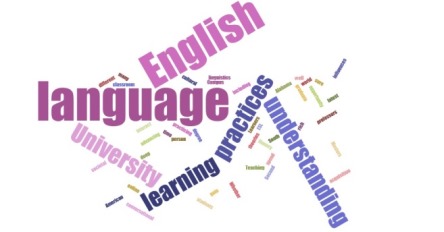
Tiếng Anh Cơ Bản
Tiếng Anh lớp 12 với hệ thống kiến thức phong phú, đa dạng, các em học sinh cần có phương pháp thích hợp để tổng hợp lại kiến thức đã học. Việc nắm vững kiến thức qua bài tập là cách tốt nhất. Các em có thể tham khảo bài tập tiếng Anh lớp 12 unit 12 có đáp án dưới đây để luyện tập tại nhà nhé.

Bài tập tiếng Anh lớp 12 có đáp án
Bài tập tiếng Anh lớp 12 có đáp án chuẩn
UNIT 12: WATER SPORTS
I. Underline the silent letters in the words below.
doubt
foreigner
awful
Christmas
muscle
yacht
vegetable
pneumonia
Wednesday
history
design
calm
science
listen
honest
subtle
plumber
psychology
wreck
answer
evening
handkerchief
exhaust
receipt
knee
interest
thought
although
island
neighbor
walk
history
ocean
vehicle
literature
ghost
cupboard
autumn
sword
castle
II. Match the names of types of water sports to their appropriate meanings.
1. scuba-diving
a. a sport of traveling across water in a boat
2. windsurfing
b. a sport in which you stand on boards and ride on the surface of water while being pulled behind a boat
3. water polo
c. a sport of swimming under water using special breathing equipment
4. synchronized swimming
d. a sport in which you move across the water standing on a flat board with a sail that you can move
5. water-skiing
e. a sport of traveling in a boat using oars
6. sailing
f. a sport of traveling in or racing a canoe
7. rowing
g. a sport played in water by two teams of seven
players who get points by throwing a ball into the opponent’s goal
8. canoeing
h. a sport in which groups of swimmers move in patterns in the water to music
III. Fill in each blank with one appropriate word to complete the passage.
The second biggest Olympic (1)………………is swimming although there was no swimming in the ancient Olympics. The first 50-(2)………………. pool was used in 1924 and the first pool inside was used in 1948. Now the pools are always very modern, and the race can be timed (3)…………………0.001 seconds. The USA’s Mark Spitz is the most successful Olympic (4)…………… of all time. In Munich in 1972, he (5) …………………seven gold medals - a record number in one Games. Together with swimming is (6)………………… polo, which is hard, fast and exciting. And (7)…………………is diving, which is very beautiful to (8)…………………. One of the events is from 10 meters (9)…………………the pool, the same (10)…………………diving from top of a house.
IV. Say whether the verbs in the following sentences are transitive or intransitive.
1. Accidents like this happen all the time.
……………………….
2. I was standing only a few feet away.
……………………….
3. We discovered this beach while we were sailing around the island.
……………………….
4. A stone struck me on the head.
……………………….
5. The phone rang and broke my train of thought.
……………………….
6. All the windows broke with the force of the blast.
……………………….
7. She had to write a report on the project.
……………………….
8. He made a very remarkable discovery.
……………………….
9. We waited patiently at the station
……………………….
10. Shall I ever forget those happy days?
……………………….
V. Write sentences starting at column A. You must decide if the sentence ends at A, or if you need to continue with column B. If the sentence is still not complete, you should then use column C.
A
B
C
The train has arrived
I’ll send
We gave
He got
Louise put
The sun was shining
They built
Physical exercise keeps
Quick! She’s fainted
She finished
My foot hurts
Did you see
law school
good marks
you
some new flats
the car
the driver
your sister
the team
in all subjects
last year
a tip
fit
in the garage
an email
1. ……………………………………..
7. ……………………………………..
2. ……………………………………..
8. ……………………………………..
3. ……………………………………..
9. ……………………………………...
4. ……………………………………..
10. …………………………………….
5. ……………………………………..
11. …………………………………….
6. ……………………………………..
12. …………………………………….
VI. If it is possible to leave out the object (in italics) after the verbs, put brack-ets around it.
Jill was (1) reading a book when the telephone rang. It was Val. She said, “I called you earlier, but nobody (2) answer the phone. Would you like to come over to (3) eat dinner tonight with me and Tom? Jill (4) thanked Val and said that she’d love to come. At about 7.00. She (5) washed herself and (6) brushed her hair. Then she (7) changed her clothes and (8) put on some makeup. After that she (9) drove her car to Malstowe, the village where Val and Tom lived. Val was gardening when Jill (10) reached their house and she (11) waved her hand when saw John. Jill (12) parked her car on the drive and walked over to Val. Jill (13) enjoyed the evening very much. The food was excellent. The others shared a bottle of wine, but Jill didn’t (14) drink alcohol and had orange juice instead. They talked a lot about their holiday plans, Jill hoped to go to Canada, but wasn’t sure yet that she could (15) afford it. Before she left, Jill (16) helped wash up the dishes. As she drove home, she decided that she must (17) invite Val and Tom for a meal at hẻ house very soon.
VII. If possible, make a corresponding sentence with a passive form. If it is not possible, write ‘No passive’.
1. Nobody has paid for the tickets, have they?
…………………………………………………………………………………..
2. BBC stands for British Broadcasting Corporation.
…………………………………………………………………………………..
3. Are they meeting him at the station?
…………………………………………………………………………………..
4. I slept for nearly ten hours last night.
…………………………………………………………………………………..
5. We’d better see to the car or we’ ll have an accident.
…………………………………………………………………………………..
6. Some people objected strongly to some of the proposals.
…………………………………………………………………………………..
7. The ship slowly disappeared from the view.
…………………………………………………………………………………..
8. The house belongs to a very old lady.
…………………………………………………………………………………..
9. Everyone must adhere to these rules.
…………………………………………………………………………………..
10. A dreadful thought has just occurred to me.
…………………………………………………………………………………..
11. It’s terrible when people ignore you.
…………………………………………………………………………………..
12. The student got the information down as fast as they could.
…………………………………………………………………………………..
13. Has everybody finished with these library books?
…………………………………………………………………………………..
14. He finished 12 seconds outside the world record.
…………………………………………………………………………………..
15. Basically my flat consists of three rooms.
…………………………………………………………………………………..
VIII. Write the passage, using the words given.
Snorkeling/ practice of swimming/ surface/ body of water/ while/ equip/ diving mask/ snorkel/ swimfins. In cooler waters/ wetsuit/ also wear. Combine/ these tools/ allow/ snorkeler/ observe underwater attractions/ extended periods of time/ relatively little effort.
Snorkeling/ popular recreational activity/ particularly/ tropical resort destinations/ and/ accessible scuba diving locations. Snorkeling/ also employ/ scuba divers/ when near the surface. Search and rescue teams/ may/ snorkel/ as part/ water-based search.

Luyện tập càng nhiều sẽ càng nắm vững kiến thức hơn
ĐÁP ÁN:
I.
doubt
foreigner
awful
Christmas
muscle
yacht
vegetable
pneumonia
Wednesday
history
design
calm
science
listen
honest
subtle
plumber
psychology
wreck
answer
evening
handkerchief
exhaust
receipt
knee
interest
thought
although
island
neighbor
walk
history
ocean
vehicle
literature
ghost
cupboard
autumn
sword
castle
II. 1. c 2. d 3. g 4. h 5. b 6. a 7. e 8. f
III.
1. sport
2. meter
3. to
4. swimmer
5. won
6. water
7. there
8. watch
9. above
10. as
IV.
1. intransitive(intr)
2. intr
3. transitive(tr) - intr
4.tr
5. intr - tr
6. intr
7. tr
8. tr
9.intr
10. tr
V.
1. The train has arrived.
7. They built some new flats.
2. I’ll send you an email.
8. Physical exercise keeps the team fit.
3. We gave the driver a tip
9. Quick! She fainted.
4. He got good marks in all subjects.
10. She finished law school last year.
5. Louise put the car in the garage.
11. My foot hurts.
6. The sun was shining.
12. Did you see your sister?
VI.
1. reading (a book)
7. changed (her clothes)
13. enjoyed the evening
2. answer (the phone)
8. put on some makeup
14. drink (alcohol)
3. eat (dinner)
9. drove (her car)
15. afford it
4. thanked Val
10. reached their house
16. wash up (the dishes)
5. washed (herself)
11. waved (her hand)
17. invite Val and Tom
6. brushed her hair
12. panked (her car)
VII.
1. The tickets haven’t been paid for, have they?
2. No passive
3. Is he being met at the station?
4. No passive
5. The car had better be seen to or we’ll have an accisent.
6. Some of the proposals were strongly objected to.
7. No passive
8. No passive
9. These rules must be adhered to.
10. No passive
11. It’s terrible to be ignored.
12. No passive
13. Have these library books been finished with?
14. No passive
15. No passive
VIII.
Snorkeling is the practice of swimming at the surface of a body of water while equipped with a diving mask, a snorkel, and swimfins. In cooler waters, a wetsuit may also be worn. Combining these tools allows the snorkeler to observe underwater attractions for extended periods of time with relatively little effort.
Snorkeling is a popular recreational activity, particularly at tropical resort destinations and at accessible scuba-diving locations. Snorkeling is also
Employed by scuba-divers when near the surface, and search and rescue teams may snorkel as part of a water-based search.
Mỗi ngày các em luyện tập một unit mà English4u đã giới thiệu thì chắc chắc sẽ chuẩn bị tốt cho kỳ thi tốt nghiệp và đại học sắp tới đó. Các em có thể download bản đầy đủ tại đây về máy tính của mình nhé.
Link nội dung: https://tuvitot.edu.vn/tieng-anh-12-unit-12-a23281.html